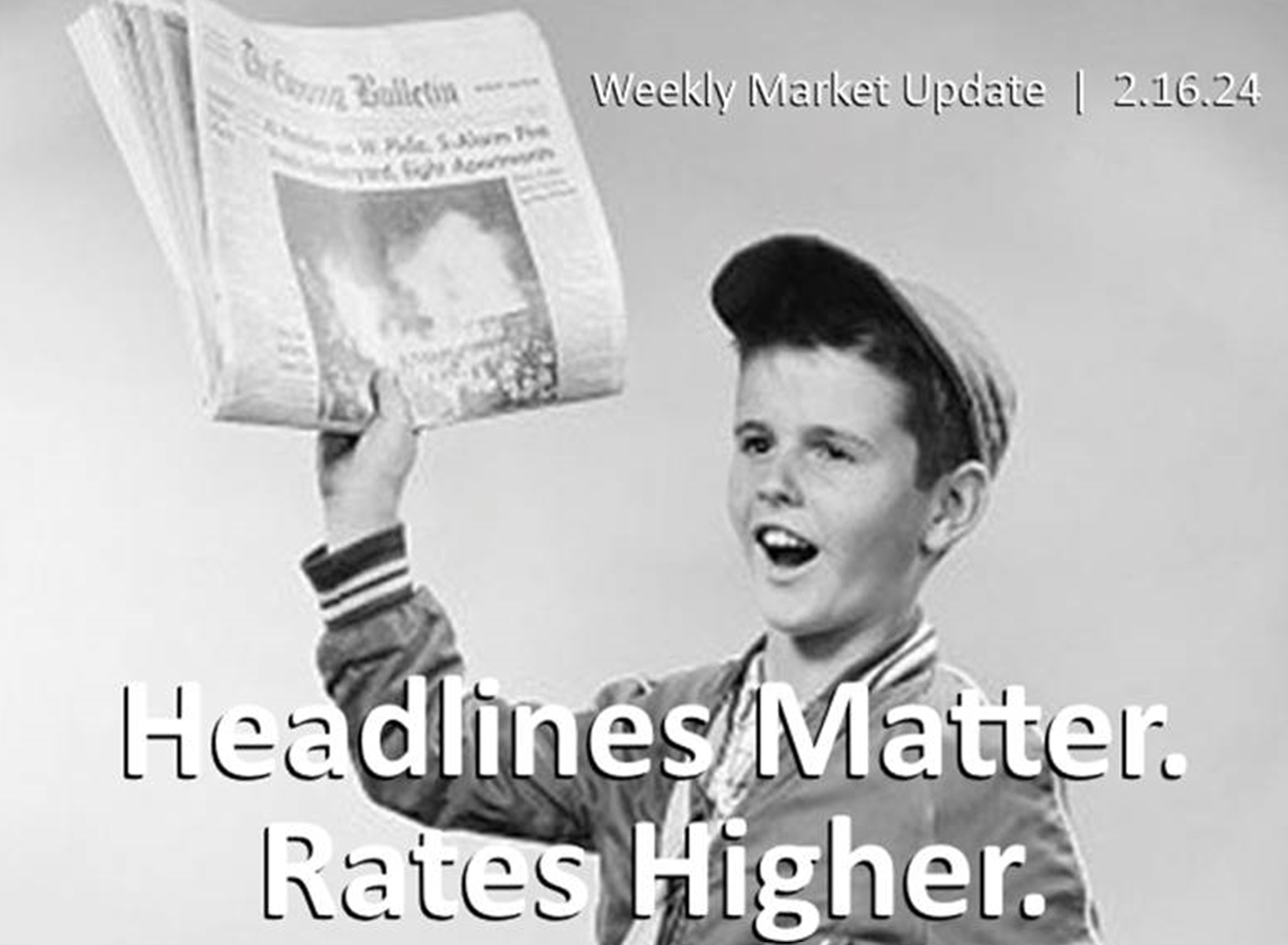Puget Sound Real Estate: Headlines Matter. Rates Higher.
The latest and NOT greatest inflation report came out this past Tuesday. The Consumer Price Index report for January showed that inflation decreased from 3.4% to 3.1%, which is great on one hand, but it was hotter than what the market was expecting on the other (the market wanted it to fall to 3%). The Core Inflation Rate (which strips out volatile food and energy prices) also came in a tenth of a percent higher than what the market wanted, at 3.9%.
If you’ve been reading these updates for a while then you already know that inflation is the number one driver of mortgage interest rates – pushing them higher when inflation is hotter than expected, and pulling them lower when inflation is cooler than expected. Employment reports also play a big role in mortgage interest rates, as those reports can generally portend possible future inflation or deflation ahead. So far this February has looked a lot like last February – Groundhog Day anyone? The monthly employment report released earlier this February also came in WAY higher than expectations, and now the biggest inflation report of the month is hotter than expected as well. According to Mortgage News Daily, rates jumped .17% on Tuesday after the release of the Consumer Price Index, and are up .46% since February 1. Not ideal, but is this a short-term over-reaction? Or a new long-term trend? Check this out…
On Wednesday, Lyft (the rideshare company) announced earnings. Within 1 second of their earnings release the stock was up about 60%. The reason for this? A big typo. Lyft’s earnings report said that their profit margin was 5%. Turns out they forgot the decimal. It wasn’t 5%, it was POINT 5% – half a percent, aka, 1/10th of what was printed on the report. Nonetheless, the market IMMEDIATELY responded upon the release of the earnings report, and shot up about 60%. It came to light that the major reason for the immediacy of this stock jump was that about 75% of all trades on Wall Street are made by bots. AI and trading bots immediately digested the Lyft earnings report, and shot Lyft stock higher.
Eventually the earnings report was updated and Lyft stock adjusted to only +35% on the day…still a fantastic day on the heels of a fantastic earnings report, but not quite as fantastic as initially released. Anyway, circling back to this past Tuesday’s inflation report and why we’re seeing almost a half percent higher mortgage interest rate today compared to what we had at the beginning of the month – Given how trading is done these days, we might have to chalk some of February’s giant run-up in rates up to bots. AI and bots are reading the employment and inflation reports and pushing rates higher based on what they’re seeing. Nevermind that January is adjustment month, and the last couple January employment reports have been big outliers relative to the rest of the year. Also, nevermind the underlying economics for why some of the data is coming out like it is (some of which we’ll discuss below). Headlines matter! We might all have a feeling for where things could or should be headed (ie. Lower), but until the headlines start telling the bots to push rates lower, we’re going to be subject to the AI algorithms moving the markets where they do (which right now, is higher).
Take it Home
Elliot Eisenberg had this to say the night before the latest inflation report: In 23Q4, consumer debt rose $212 billion. Mortgage balances increased $112 billion, HELOCs rose $11 billion, credit card balances added $50 billion, auto loans were up $12 billion, and other balances such as retail cards and consumer loans increased $25 billion. In 23Q4, consumer spending was up $208 billion, meaning that over 100% of the rise in consumer spending was debt-financed – not a sign of healthy households.
Rates will trade on the headlines. Right now the headlines are saying America’s economy is strong and growing, which has inflation sticky and mortgage rates elevated. While that may be true to an extent, in time it feels like things will come around and rates will eventually trend meaningfully lower (especially if over 100% of our consumer spending growth is financed, as Elliot points to above). Until then, mortgage rates are hanging out where they are – in the high 6s/low 7s.
SOURCE: Kyle Bergquist

 Facebook
Facebook
 X
X
 Pinterest
Pinterest
 Copy Link
Copy Link


